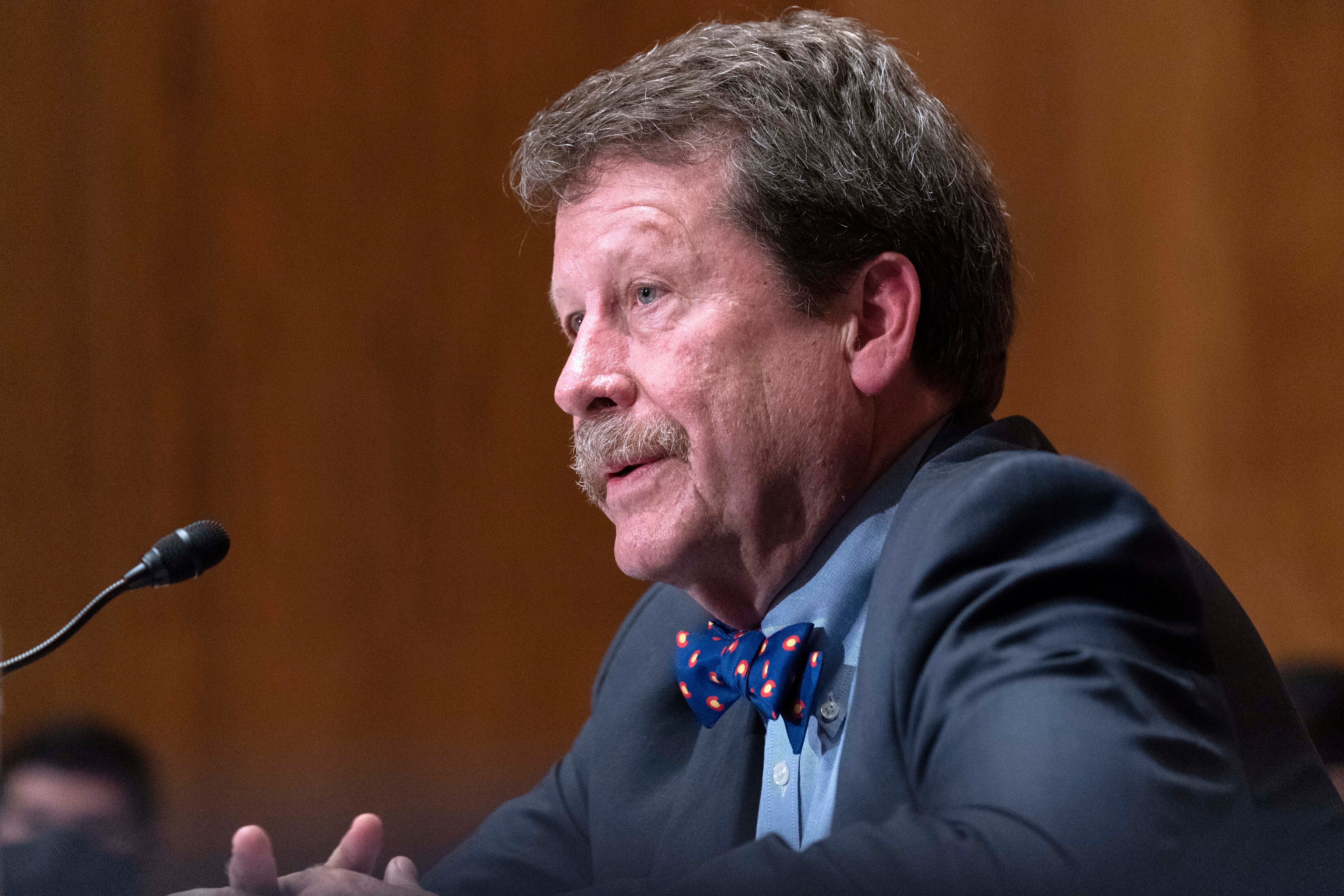FDA weighs oversight changes after Juul, formula troubles
The head of the Food and Drug Administration is commissioning an independent review of the agency’s food and tobacco programs

Your support helps us to tell the story
From reproductive rights to climate change to Big Tech, The Independent is on the ground when the story is developing. Whether it's investigating the financials of Elon Musk's pro-Trump PAC or producing our latest documentary, 'The A Word', which shines a light on the American women fighting for reproductive rights, we know how important it is to parse out the facts from the messaging.
At such a critical moment in US history, we need reporters on the ground. Your donation allows us to keep sending journalists to speak to both sides of the story.
The Independent is trusted by Americans across the entire political spectrum. And unlike many other quality news outlets, we choose not to lock Americans out of our reporting and analysis with paywalls. We believe quality journalism should be available to everyone, paid for by those who can afford it.
Your support makes all the difference.The head of the Food and Drug Administration said Tuesday he has commissioned an independent review of the agency's food and tobacco programs following months of criticism over its handling of the baby formula shortage and e-cigarette reviews.
The announcement comes as FDA Commissioner Robert Califf attempts to push past several controversies that have dominated his second stint running the agency, including the delayed response to contamination problems at the country’s largest infant formula plant.
“Fundamental questions about the structure, function, funding and leadership need to be addressed” in the agency's food program, Califf said in a statement. The agency's tobacco center, which regulates traditional cigarettes and vaping products, is facing challenges navigating policy and enforcement issues from “an increasing number of novel products that could potentially have significant consequences for public health.”
Califf said the non-profit Reagan-Udall Foundation — a non-governmental research group created by Congress to support FDA’s work — would convene experts to deliver evaluations within 60 business days of both the food and tobacco operations.
Califf has faced frustration from parents and politicians over the agency's handling of a recent decision to ban all e-cigarettes from Juul, the leading U.S. vaping company. A federal court quickly blocked the agency’s order last month. And the FDA recently backtracked further in court, saying it needed more time to review Juul’s application due to its “unique scientific issues.”
The FDA has also struggled to review millions of other applications from vaping companies, prompting multiple missed regulatory deadlines over the last two years.
President Joe Biden tapped Califf for the FDA job largely because of his prior experience at the agency, which he briefly led during the Obama administration.
A cardiologist and widely respected researcher, Califf planned to focus his time at FDA on fighting medical misinformation and streamlining the agency’s data systems.
But those efforts have been eclipsed by newer controversies, including political outrage over the formula shortage, which has forced the U.S. to airlift millions of containers of formula from Europe. Recently, the FDA said it would help foreign manufacturers stay on the U.S. market for the long term, in an effort to diversify the formula supply here.
In May, Califf testified before Congress about a series of missteps that slowed the agency’s response to contamination problems at the Michigan formula plant. While many of the setbacks came before Califf started on the job, he struggled to explain who was ultimately responsible for food safety within FDA’s bureaucracy.
FDA’s food program has a byzantine leadership structure in which there is a director for food and a separate deputy commissioner for “food policy and response.” The deputy commissioner has more of a safety focus, but has no direct authority over food center staff nor regional personnel who inspect company plants.
“You have serious structural leadership issues,” Rep. Rosa DeLauro, a Connecticut Democrat, told Califf during the hearing.
On Tuesday, Califf said it could take time to implement any recommendations from his request.
“But I am committed to addressing them and communicating them to the public in a timely manner,” he said in a statement.
Responding to multiple crises is a standard part of leading the FDA, which regulates industries that account for an estimated one-fifth of all U.S. consumer spending.
Despite the recent controversies, some experts say Califf has done a good job, considering the increasing political polarization surrounding the issues and products it oversees.
“Leading the FDA is becoming as complicated as, maybe more complicated than, leading a cabinet-level executive department,” said Daniel Carpenter, a professor of government at Harvard University. “I think Califf has navigated a pretty politically fraught environment and he has done it with remarkable skill.”
___
Follow Matthew Perrone on Twitter: @AP_FDAwriter
___
The Associated Press Health and Science Department receives support from the Howard Hughes Medical Institute’s Department of Science Education. The AP is solely responsible for all content.